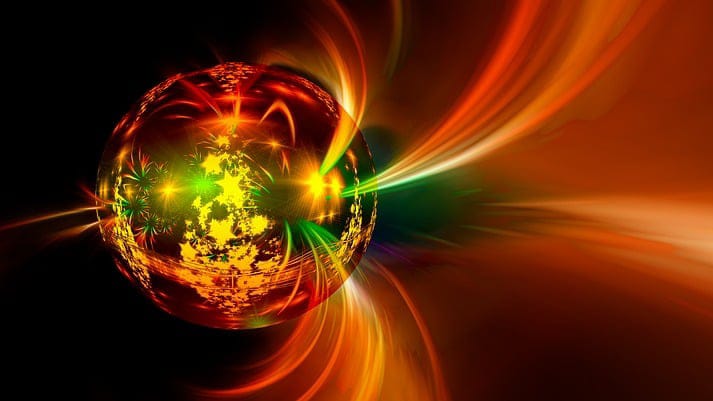INDIA: In their quest to understand the deepest mysteries of the cosmos, scientists have long sought to reconcile two fundamental theories of physics: quantum mechanics and general relativity.
While both theories have proven to be remarkably successful in their respective domains, they seem to be incompatible when it comes to describing the behaviour of the universe on the smallest and grandest scales.
This enigmatic challenge, known as the Quantum Gravity Paradox, continues to perplex researchers and promises to reshape our understanding of the fundamental forces that govern the universe.
Quantum mechanics governs the subatomic realm, describing the behaviour of particles such as electrons and photons. It introduces the notions of uncertainty and probability, challenging our traditional understanding of determinism.
On the other hand, general relativity, formulated by Albert Einstein, provides a brilliant description of gravity as the curvature of spacetime caused by massive objects. This theory has been incredibly successful in explaining the motion of planets, stars, and galaxies on cosmic scales.
The Quantum Gravity Paradox arises when one attempts to merge these two theories into a unified framework that can accurately describe the behaviour of the universe across all scales, from the tiniest subatomic particles to the vast expanse of the cosmos.
At the heart of the paradox lies the fundamental disagreement between the continuous, smooth spacetime of general relativity and the discrete, quantized nature of quantum mechanics.
One of the key challenges scientists face is the nature of spacetime itself. General relativity treats spacetime as a smooth, continuous fabric that bends under the influence of matter and energy.
Quantum mechanics, on the other hand, suggests that spacetime might be inherently granular, composed of indivisible units known as Planck length and Planck time.
Attempting to merge these concepts leads to paradoxical predictions, such as the formation of singularities where gravity becomes infinitely strong, or the violation of causality, where cause and effect lose their meaning.
Many theoretical physicists have dedicated their careers to exploring potential solutions to the Quantum Gravity Paradox. Several approaches, such as string theory, loop quantum gravity, and causal dynamical triangulation, offer promising insights into the unification of quantum mechanics and general relativity.
However, the quest for a definitive answer remains ongoing, and the complete resolution of the paradox continues to elude the scientific community.
The implications of resolving the Quantum Gravity Paradox would be profound. A successful theory of quantum gravity would provide a more complete understanding of the early moments of the universe, such as the Big Bang, where the effects of both quantum mechanics and gravity were significant.
It could also shed light on the nature of black holes, where the gravitational pull is so strong that even light cannot escape, and where quantum effects are believed to play a crucial role.
Moreover, a unified theory of quantum gravity could potentially open the door to the unification of all fundamental forces, including the electromagnetic force and the strong and weak nuclear forces, into a single, elegant framework known as the Theory of Everything.
While the Quantum Gravity Paradox remains one of the most profound and challenging enigmas in physics, it also represents an exciting frontier of scientific exploration.
As technology advances and theoretical tools become more sophisticated, researchers are optimistic that they will eventually unlock the secrets of quantum gravity and bring us closer to a unified understanding of the universe’s underlying laws.
Until then, the paradox serves as a testament to the boundless curiosity and determination of humanity to unravel the mysteries of the cosmos.
Also Read: Russell’s Paradox: The Mind-Boggling Self-Referential Conundrum of Classic Mathematics



